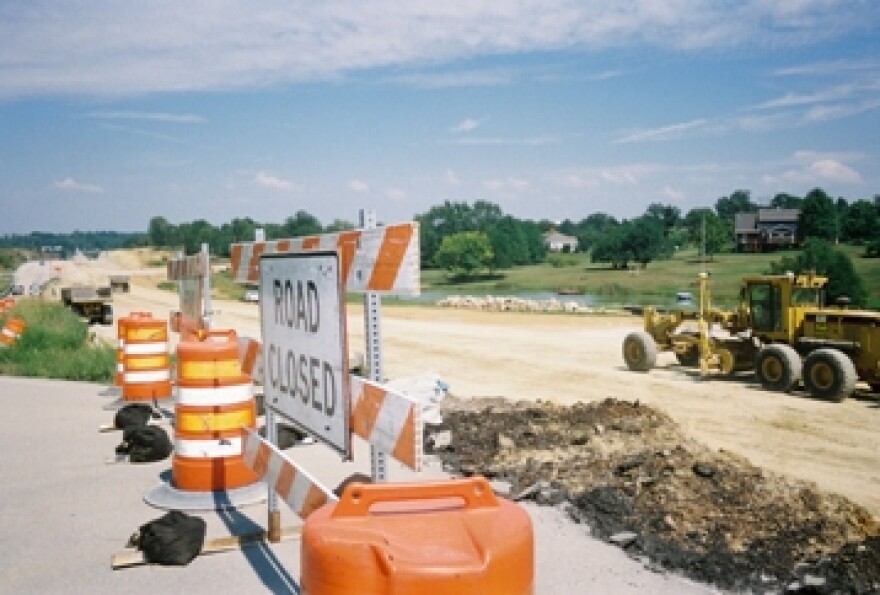Kentucky’s transportation cabinet has announced that it will pause new road projects over the next fiscal year starting July 1.
According to the cabinet, the “Pause-50” initiative will halt about $145 million in projects to help the state recoup lost revenue, pay current expenditures and rebuild the state road fund.
During a legislative committee hearing on Tuesday, Transportation Cabinet Secretary Greg Thomas said major projects will still move forward.
“We went to the districts, we determined what the priorities were; we also looked at projects that hadn’t fully developed or fully started in terms of the right of way and utility phase, and those were the projects that came up,” he said.
Road resurfacing projects, the Louisville bridges project, construction of the I-69 corridor and bridge replacement projects will still progress.
The state’s road fund has declined in recent years, partly due to dwindling returns from the state’s motor fuels tax. The official road fund revenue estimate predicts that receipts into the road fund will decrease 5.3 percent by the end of the fiscal year on June 30.
The Transportation Cabinet says state spending on road projects has greatly exceeded revenues in recent years. They say the road fund received $4.5 billion from the 2014 to 2016 fiscal years, while spending over $5 billion.
“…[T]he start of new state funded projects must be delayed in order to meet payment of current expenditures as well as restoring the $100 million cash balance threshold,” cabinet officials said in a release.
Meanwhile, according to the state budget director, road fund revenue picked up 13.3 percent in April — the most recent month available. Collections were $130.4 million in April 2016, $15.2 million more than April of 2015.
Secretary Thomas said if revenues continue to increase, the highway project freeze could be lifted earlier.
“I would like to do more,” Thomas said. “I’m all for investing our infrastructure, I certainly don’t want us to get back to the old gravel.”
Rep. Leslie Combs, a Democrat from Pikeville, cautioned Thomas to consider how the freeze would affect rural communities that have lost jobs in recent years.
“I see what you’re trying to do, I understand what you’re up against but be particularly conscious about where it’s affecting because there’re some places that just can’t take anymore,” Combs said. “These are dollars that also are vital to our local economies and they have to do with creating an economy and jobs.”
Last year, the Kentucky General Assembly created an artificial “floor” to the state’s fuel tax to try and soften the blow of dwindling tax receipts into the state road fund.
At the time, transportation officials said the move saved the state about $291 million in lost fuel tax revenue, but still lost $165 million.
Officials blame the situation on relatively low gas prices and more fuel efficient vehicles


